Broken record, broken families – a review as Trinidad and Tobago reaches 600 murders in 2022
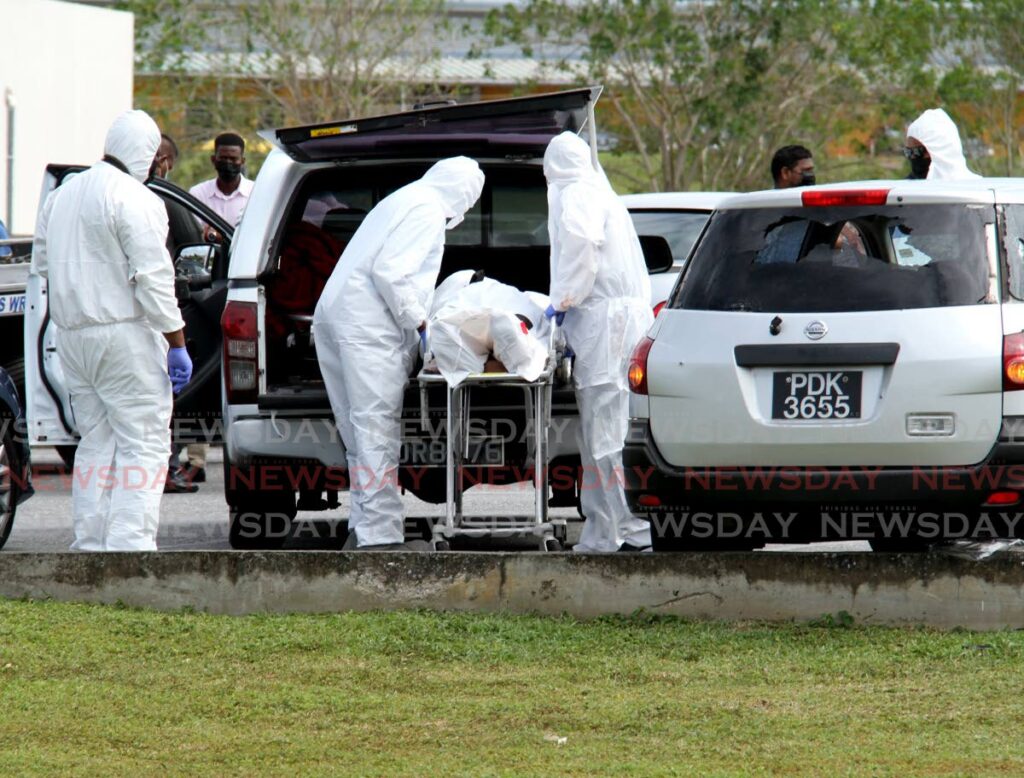
ON the afternoon of January 1, residents of Sapphire Drive, off Crown Trace in Tacarigua made a gruesome discovery when they found the bloodied body of 67-year-old Ezla Theodora Sandy.
Sandy's body had marks of violence and police suspect she was killed and robbed.
Sandy's murder marked the beginning of what would be the bloodiest year in TT's history in terms of murders, with 600 recorded as of December 30 – breaking the previous record of 550 set in 2008.
The rapidly escalating murder toll caused fear and outrage from all corners of society who pointed to an increase in the frequency of multiple killings (double and triple murders), which the authorities blamed on the availability of automatic weapons.
Among those killed for 2022 were several children, some of them babies and toddlers.
In January, ten-year-old Christian Liverpool was shot dead while playing with a gun at a relative's Arima home.
On February 5, Kevin Kyle Spring, 14, was shot dead at Upper Cemetery Street, Diego Martin, in an attack which left three others dead.
Days later, on February 16, 15-year-old Antonio Badenoch was gunned down while looking for a WiFi signal during an islandwide blackout near his St Vincent Street, Tunapuna home.
On April 12, six-year-old Zakariah Charles died at his St Joseph Road, east Port of Spain, home while taking a shower.
Charles' body had several bruises and an autopsy revealed he died of blunt force trauma which suggests he was beaten to death.
Charles' mother Rnella Charles, 31, and her boyfriend Stephon Brizan, 32, were later charged with manslaughter.
On October 15, nine-year-old Jamal Modeste was shot dead while playing at the Africa Recreation Grounds, Enterprise, Chaguanas.
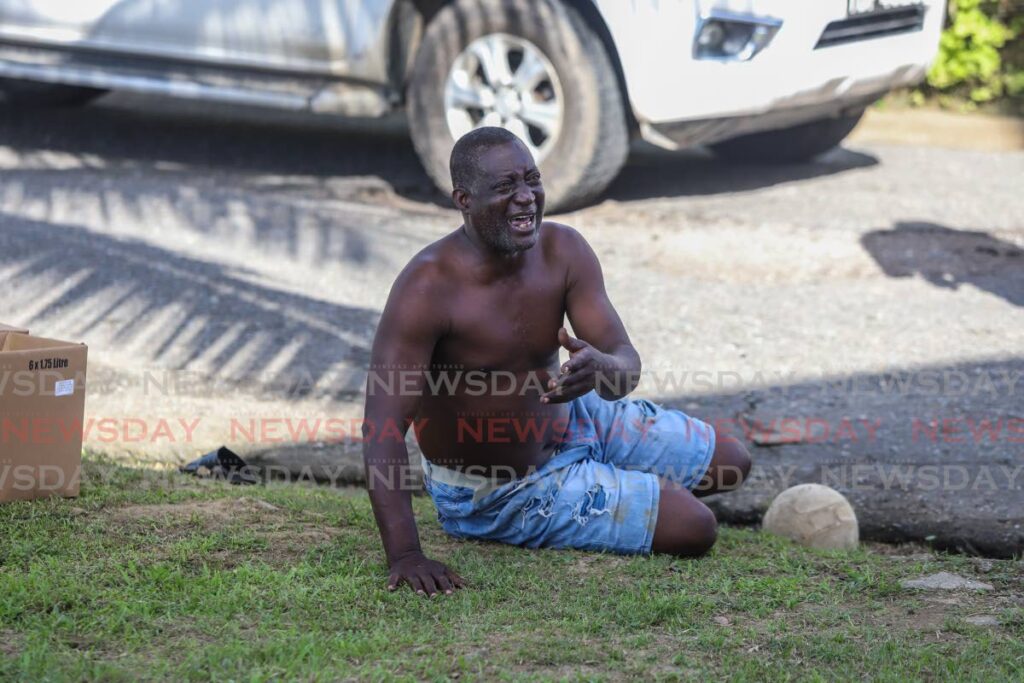
Days later, on October 23, Nazim Owen, three, was among four people shot and killed on the Diego Martin Main Road.
In the most recent incident, on December 19, one-year-old Nova Brereton was shot dead along with her mother Sashell Elliot, at the latter's Moruga mini mart.
Figures provided by the TTPS' Crime and Problem Analysis (CAPA) unit showed that gang-related murders accounted for the largest portion of murders with 241, while 94 drug-related murders made up the second largest portion and revenge making up the third largest portion with 54 murders recorded.
Ag CoP: Gang problem on the front burner
Responding to Newsday's questions via WhatsApp on Thursday, acting Police Commissioner Erla Christopher said she was aware of the prevalence of gang-related murders and is hopeful that initiatives introduced would tackle the gang problem.
"Aside from the increased initiatives involving local and international collaboration which are geared towards crime suppression and detection, it is intended that psychosocial interventions through the GRACE programme will strengthen society's ability to resist gang entry and enhance their lifestyle away from criminal behaviour," Christopher said.
Commenting on the murder toll, Christopher said while such high numbers are worrying, it only strengthens her resolve to work harder.
"As a citizen I am terribly concerned that this type of statistic prevails in my country.
"As a citizen with a responsibility to address issues of crime and security, this drives my resolve and sense of urgency to make all efforts to bring swift long-term and short-term interventions which will impact crime reduction generally and murders specifically," she added.
The police, with the support of other related agencies this year, launched a series of initiatives aimed at preventing conflicts from escalating to violence.
Several community outreach programmes were launched namely mediation seminars, the opening of a Community Conflict Resolution Centre (CCRC) in St Joseph and the introduction of the Gang Reduction and Community (GRACE) programme.
Speaking with Newsday, head of the GRACE project Yolande DeLeon said the programme aims at strengthening the resilience of communities through outreach programmes while sensitising police on strategies in tackling organised crime at a community level.
GRACE is a US government-funded programme through the State Department's Bureau of Narcotics and Law Enforcement Affairs.
"We partnered with different divisions by providing hampers for needy people, but as we move forward, as we go into working with the community, we will be doing an assessment of the gang and crime in those communities and working with them to come up with strategies to deal with those issues.
"We will be seeking to identify the risk factors of the community, the community members and work with the providers of the programmes to put in place the protective factors to make those communities and their members more resilient."
DeLeon admits while the work of the GRACE project will not achieve results overnight, it is a vital part of long-term planning that can save future generations from falling into a cycle of crime.
"It is a long process, crime is a result of underlying circumstances that involve socio-economic planning, medical and a number of issues therefore if we have to tackle crime from a strategic point of view the police also have to look at dealing with the root causes to crime and coming up with solutions to that in addition to their regular suppression strategies."
These activities are aimed at boosting public trust in the police, however citizens are still concerned that providing information on crimes and criminals can lead to their deaths.
Responding to these concerns Christopher said trusting the police was an important part of the crime fight and implored citizens to use the different crime hotlines to share information.
"Have confidence that we as a service are making significant discoveries and interventions including initiating prosecutions.
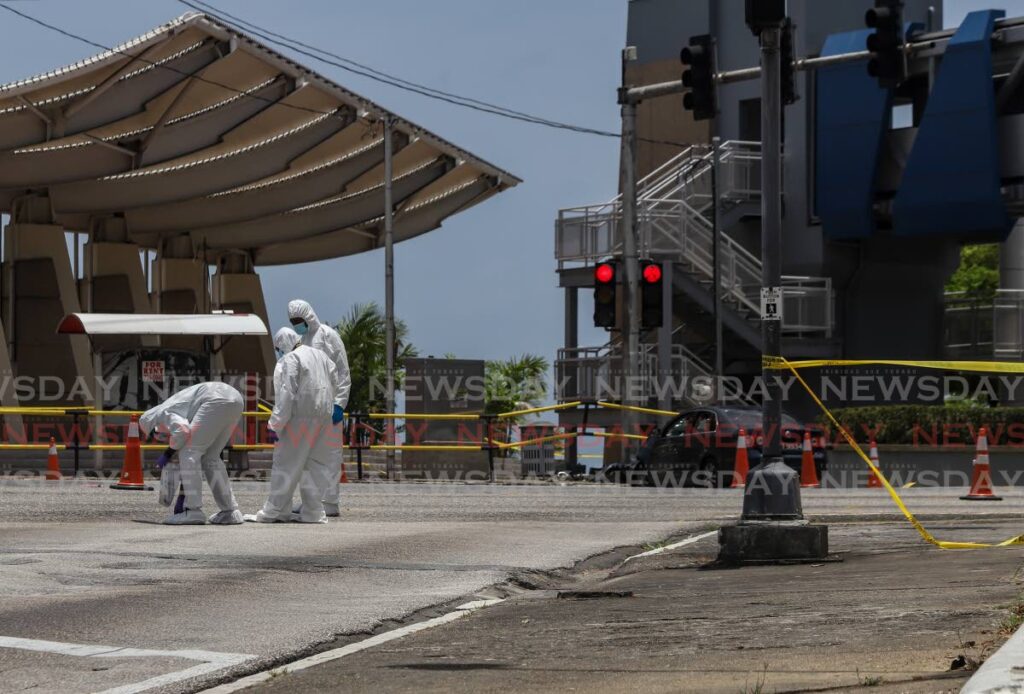
"Our system as it relates to informants has not been compromised and the Crime Stoppers (800-8477) and 555 hotlines remain highly confidential as well as the new number to access the Commissioner's direct intervention.
"Additionally any leakage of information is punishable in the disciplinary framework as an act of discreditable conduct.
"Accessing the institutional systems to ensuring that we play our part in preserving our institutional integrity, it all starts with the courage to take charge and feeling a sense of responsibility to make a difference.
"You must know some good officer or other person who knows a trustworthy individual to share information through that person at least, but share and follow up drive a culture of accountability and we will turn this around."
Criminologist: More combative police not the solution
Speaking with Newsday criminologist Darius Figuera said community engagement was not only important to law enforcement but mandatory to earn the trust and support of the public.
He said that a more combative police service was not the solution to addressing crime in TT, noting that recent upticks in crime have prompted the police to change their strategies to keep pace with criminals.
"It was so bad in 2022 that the TTPS now has to become multi-skilled in its approach because the old idea that you can suppress it (crime) and you could keep investing in the technology of suppression doesn't work.
"So you can talk about armoured personnel carriers and et cetera, the fact of the matter is it is not working because if at the ground level you are coming to commit a simple robbery with a AR 15 and you're taking multiple lives in the process of it because you have an AR15, how is the militarisation (of police) going to stop that when the fundamental issue is who is stopping the ARs from coming in illegally?"
Figuera said while the entry of illegal guns in TT was not a new problem, it remained a crucial contributor to violence as he feels the availability of high-powered weapons changed the type of violence seen in recent times.
"Because of the availability of illicit weapons, the nature of violence has changed dramatically in 2022.
"What we noticed in 2022 is you are coming to take out people, you are shooting on crowds on football fields and things like that and you are using automatic rifles.
"So even in engagements that has nothing to do with gang and gang warfare, but basic simple conflict, illicit, automatic rifles have now penetrated into that sphere.
"Simple robberies that end with multiple murders because of the presence of automatic rifles, so that is what is escalating the violence."
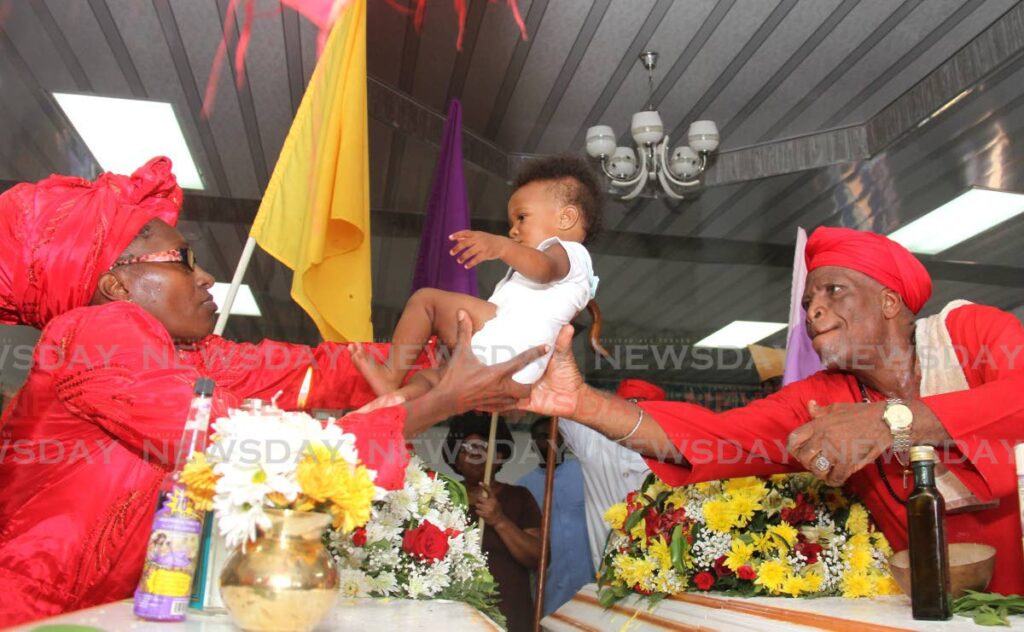
As of Thursday afternoon, the police had seized 673 illegal guns for 2022.
The month with the highest murder toll for the year was August with 68 murders, while the month with the least was June, with 36 murders.
Figuera also noted the prevalence of dismemberments and decapitations this year which he attributed to increasing tension between transnational organised crime groups operating in TT.
On October 17, a man stumbled across a severed leg protruding out a piece of sponge in a shallow stream off Gillis Road, Mon Plaisir Road, Cunupia.
Police were called in and found the dismembered remains of two men stuffed in two garbage bags nearby.
The men were later identified as Makell Simon, 31, and Josiah Charles, both from Chaguanas.
An autopsy found that Charles was shot in his head.
As of Thursday afternoon, a motive was not established for both men's murders.
One policeman said the discovery of bodies dismembered in such a fashion was something he had not encountered before.
While community building and the interdiction of illegal guns have been highlighted as the two major points in fighting crime, concerns were also raised over the willingness of different institutions to adapt to change to effectively tackle crime.
Former CoP: Technology available but not well-utilised
Responding to Newsday's questions via e-mail on Thursday, former police commissioner Dr Dwayne Gibbs described the 2022 murder record as "untenable" and blamed the bloodshed on an unwillingness by local institutions to change for the better.
Gibbs is a former superintendent of the Edmonton Police Service in Canada.
He and fellow Canadian Jack Ewatski were appointed commissioner and deputy commissioner respectively in 2010. They both resigned in July 2012.
Gibbs said while felt the police were adequately equipped with technology, the tools are not being utilised.
He added that an unwillingness to improve capacities also existed in the criminal justice system, referring to the sluggish pace with which court cases were heard.
"Police in TT have state-of-the-art analytical systems to gather and analyse intelligence information and enhance their investigations; they have been provided opportunity and empowered to practise 21st Century policing models that would see officers engaged in community-building and preventative policing and yet they fail and refuse to use the tools that are there for them; and the courts have been provided recommendations for reform; however, there is absolutely no will to change.
"Yes, while there are high amounts of rhetoric and talk about doing so, little actual reform/change/action have been initiated by political/government leaders, police leaders, justice ministers or the Director of Public Prosecutions (DPP).
"A collective ‘will’ to allow appropriate police strategies and Court and Justice Structures to be implemented and actioned would greatly mitigate the crime and violence TT is experiencing."
Gibbs added that an efficient criminal justice system is crucial to fighting crime as it would allow for the swift prosecution of criminals after thorough investigations. He lamented that this was not the case in TT.
"Very few murders are fully or competently investigated, resulting in low detection rates (leaving thousands of murders since 2008 unsolved and perpetrators running free).
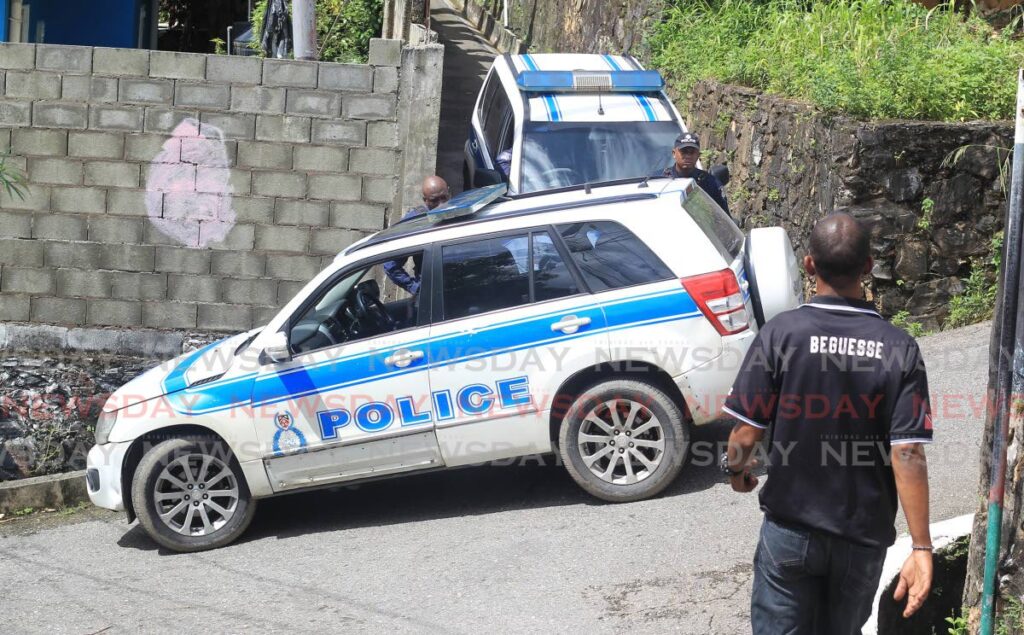
"Of those persons arrested and charged, after languishing for years just waiting to be tried in court, they see the dropping of their charges, as witnesses are no longer available to testify, evidence is lost and the courts have lost interest in the cases."
Data from CAPA showed that the police detection rate for murders in 2022 was 12.5 per cent.
Gibbs added the police service was in need of leaders who were genuinely committed to values of integrity and added that politicians should step aside and allow the police to do their jobs.
"Trinidad and Tobago requires political leaders who will step out of the way and furnish the trust and support for the police to implement the necessary changes, while the justice and court system initiate major reform."
Activists: Community engagement should be prioritised
Despite these concerns, some communities have taken the initiative to protect their children from falling into a life of crime and further develop their neighbourhoods.
In Enterprise, Chaguanas, Shihan Marva John-Logan of the Ryu Dan Empowerment Centre has been actively involved in community outreach and crime prevention on a community level, working with international agencies like the United Nations Development Programme (UNDP) for various projects.
Speaking with Newsday John-Logan said part of the problem arises from the inability of those in authority to tackle crime using a multi-pronged approach, utilising all sectors of society.
"Unfortunately we're not looking at crime as a holistic problem, we still want the police to do a little piece, the NGO's to do a little piece, corporate sector to do a little piece but we need to bring all the players at the table and stop bringing programmes that are designed by other people besides the ones that are in the communities.
"We have people coming to implement programmes in a community, but the community wasn't part of the consultation of what is going on."
John-Logan also suggested that programmes or agencies intended to help steer youths away from crime be more understanding and flexible in their requirements.
She stressed that many young people in need of direction should not be turned away because of their shortcomings and past mistakes as those were the ones most at-risk.
"It's not good enough to just say don't get involved in crime and violence.
"We have a lot of programmes but the criteria is three (CSEC) passes, five passes, seven passes and every month we're rolling out different agricultural programmes etc but we are targeting the same person.
"Who are committing crimes are on the streets? Their basic needs are not being met, some of them have no educational background at all, so how can they get access to these programmes?
"And when you go into the other programmes they still want a certificate of good character, if I am involved in a gang and I want to change my life, do you think the police will give me a clean certificate of good character?"
Newsday also spoke to community activist and attorney Kareem Marcelle who commended the efforts of the government in introducing different programmes to empower communities through skills training.
Marcelle who is also a lifelong resident of Beetham Gardens says while the police have had success in clamping down on violent crime in and around his community, there was still need for the public to partner with those in authority.
He also noted that gang warfare continues to be a challenge even to residents seeking to access certain facilities which may be located in a different neighbourhood.
"We have the Laventille Technology Centre, which is a centre intended to be a centralised hub in Laventille to bring all these programmes, however we are seeing that people from east Port of Spain cannot attend the Laventille Technology Centre.
"Young people from these communities like Dan Kelly, who have been killed in front of the Laventille Technology Centre because of the borderline issue, persons have been shot.
"You have a Laventille Technology Centre that people from Laventille can't attend so they must go now and take a maxi and go to Barataria, or Arima in order to try to get it done, so we have to look at ways to make it safe for them.
"Persons right in the community cannot benefit so that to me is indicative that we have to have an all-inclusive conversation with the community in order to ensure proper execution and introduction of these policies."
Pain of loss will linger on past 2022 for many
Even as those in authority and everyday citizens continue to grapple with crime and violence, many citizens for 2022 continue to live with the pain of losing a loved one to murder.
For Anthony Clarke, the Christmas season has been bleak as he and his family are still mourning the death of his son, Korey Clarke and his daughter-in-law Samantha Patrick who were gunned down at their Aboud Circular, Dibe, St James, home on October 26.
Clarke's eight month old granddaughter survived the attack and was covered by the bloody bodies of her parents.
Speaking with Newsday, the elder Clarke said the pain lingers with the family after the Christmas season.
"We're feeling empty. It feels like two pieces of something moved out of the family, it feels like it just moved out.
"This is the first Christmas they haven't been around with us and we feel it. My son and daughter-in-law for this Christmas they would have been the most involved with activities for us.
"They would come in and sing, but we feel empty, we still miss them. It's not the same."
Clarke says he hopes to receive justice for his son and daughter-in-law's murders, describing the crime as "heinous."
Clarke added that he also believes that despite her young age, his granddaughter may have some memories of that night her parents were killed, given her reaction to explosions.
"Around this time of year a lot of people light fireworks and sometimes when she hears the fireworks, she jumps and cries all night, all day but unfortunately we can't go and tell the entire neighbourhood to stop bursting fireworks.
"I feel when she hears the fireworks, sometimes we have to carry her in a quiet part of the house and when we see her doing that it brings back memories of when her mother and father died."

Comments
"Broken record, broken families – a review as Trinidad and Tobago reaches 600 murders in 2022"